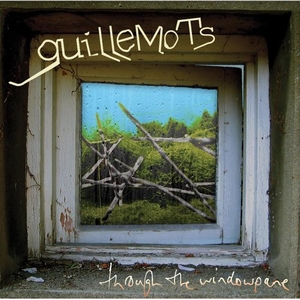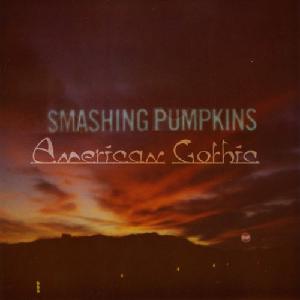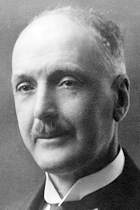
Invercargill is the southernmost and westernmost city in New Zealand, and one of the southernmost cities in the world. It is the commercial centre of the Southland region. The city lies in the heart of the wide expanse of the Southland Plains to the east of the Ōreti or New River some 18 km north of Bluff, which is the southernmost town in the South Island. It sits amid rich farmland that is bordered by large areas of conservation land and marine reserves, including Fiordland National Park covering the south-west corner of the South Island and the Catlins coastal region.
In Britain, a brass band is a musical ensemble comprising a standardized range of brass and percussion instruments. The modern form of the brass band in the United Kingdom dates back to the 19th century, with a vibrant tradition of competition based around communities and local industry, with colliery bands being particularly notable. The Stalybridge Old Band was formed in 1809 and was perhaps the first civilian brass band in the world.
Cornwall is a Celtic nation with a long musical history. Strengthened by a series of 20th century revivals, traditional folk music has a popular following. It is accompanied by traditions of pipers, brass and silver bands, male voice choirs, classical, electronic and popular music.

"Turkey in the Straw" is an American folk song that first gained popularity in the 19th century. Early versions of the song were titled "Zip Coon", which were first published around 1834 and performed in minstrel shows, with different people claiming authorship of the song. The melody of "Zip Coon" later became known as "Turkey in the Straw"; a song titled "Turkey in de Straw" with different music and lyrics was published in 1861 together with the wordless music of "Zip Coon" added at the end, and the title "Turkey in the Straw" then became linked to the tune of "Zip Coon".

RNZ Concert is a publicly funded non-commercial New Zealand FM fine music radio network. Radio New Zealand owns the network and operates it from its Wellington headquarters. The network's playlist of classical, jazz, contemporary, and world music includes recordings by local musicians and composers. Around 15 percent of its airtime features live concerts, orchestral performances, operas, interviews, features, and specialty music programs, many of them recorded locally.
"And the Band Played Waltzing Matilda" is a song written by Scottish-born Australian singer-songwriter Eric Bogle in 1971. The song describes war as futile and gruesome, while criticising those who seek to glorify it. This is exemplified in the song by the account of a young Australian serviceman who is maimed during the Gallipoli Campaign of the First World War. The protagonist, who had travelled across rural Australia before the war, is emotionally devastated by the loss of his legs in battle. As the years pass he notes the death of other veterans, while the younger generation becomes apathetic to the veterans and their cause. At its conclusion, the song incorporates the melody and a few lines of lyrics of the 1895 song "Waltzing Matilda" by Australian poet Banjo Paterson.
"The Parting Glass" is a Scottish traditional song, often sung at the end of a gathering of friends. It has also long been sung in Ireland, where it remains popular and has strongly influenced how it is often sung today. It was purportedly the most popular parting song sung in Scotland before Robert Burns wrote "Auld Lang Syne".

Beirut is an American band that was originally the solo musical project of Zach Condon. Beirut's music combines elements of indie rock and world music. The band's first performance with the full brass section was in New York, in May 2006, in support of their debut album Gulag Orkestar, but performed their first show with Condon, Petree, and Collins at the College of Santa Fe earlier that year.

Through the Windowpane is the debut full-length album from the British indie rock band Guillemots. It was released on 10 July 2006 in the United Kingdom and reached number 17 in the UK Album Chart. The album was highly anticipated following the strength of the singles "Trains to Brazil" and "Made-Up Lovesong #43". It was nominated for the 2006 Mercury Music Prize. The band released the final single from the album, a re-recording of "Annie, Let's Not Wait", on 15 January 2007.

A brass band is a musical ensemble generally consisting entirely of brass instruments, most often with a percussion section. Ensembles that include brass and woodwind instruments can in certain traditions also be termed brass bands, but may be more correctly termed military bands, concert bands, or "brass and reed" bands.

American Gothic is the fourth EP by The Smashing Pumpkins. The EP was announced on the band's website on December 19, 2007 with songwriter Billy Corgan describing it as a continuation of their 2007 album Zeitgeist. It was released digitally on January 2, 2008 and as a CD in the United Kingdom on February 11, 2008.
Alexander Frame Lithgow was a Scottish-born, New Zealand and Australian based composer and bandleader known as the "Sousa of the Antipodes". His name is pronounced "Alek" by his family.

During the American Civil War, music played a prominent role on both sides of the conflict, Union and Confederate. On the battlefield, different instruments including bugles, drums, and fifes were played to issue marching orders or sometimes simply to boost the morale of one's fellow soldiers. Singing was also employed not only as a recreational activity but as a release from the inevitable tensions that come with fighting in a war. In camp, music was a diversion away from the bloodshed, helping the soldiers deal with homesickness and boredom. Soldiers of both sides often engaged in recreation with musical instruments, and when the opposing armies were near each other, sometimes the bands from both sides of the conflict played against each other on the night before a battle.

William Alexander Ott (1872–1951) was a prominent Invercargill, New Zealand sharebroker and businessman and Mayor of Invercargill from 1910 to 1912. During his mayoralty, the Invercargill tram network was opened.

MKTO is an American pop and hip hop duo, consisting of Malcolm Kelley and Tony Oller. Their self-titled album was released on January 30, 2014, by Columbia Records. In July 2015, the duo released their first extended play, titled Bad Girls EP. As of 2022, the band has sold over 1 million records worldwide.

The Wellington Brass Band is a British-style brass band based in Wellington, New Zealand. The 28-piece ensemble performs extensively throughout New Zealand and Australia, and is the current champion band of New Zealand and Australia.

Charles Trussell aka Carlile Vernon, was a prominent musician in brass bands both in Australia and New Zealand during the late nineteenth and early twentieth centuries. He served as band master of a number of bands in both countries and was a significant composer and arranger of brass band music. He also was an adjudicator at brass band contests. He is also believed to have written vocal music. He is not to be confused with American banjoist and composer H. C. Trussell who was also active in the late 19th and early 20th centuries.

Hawthorndale is a suburb of New Zealand's southernmost city, Invercargill. It contains the city's Eastern Cemetery, and also Bill Richardson Transport World, a truck and classic car museum.
The Nelson Garrison Band was a military brass band in the New Zealand Army that served the citizens of the city of Nelson in the eastern shores of Tasman Bay. It was one of 5 garrison bands in the New Zealand Army and is considered by many to be the country's first brass band. Its legacy is retained today through the Nelson City Band. During its existence, the band had served as the premier brass band in the city of Nelson, often working with other brass bands such as the Nelson Citizen's Silver Band.

Brian Wilfred Hewat was a New Zealand barrister and politician who served as the mayor of Invercargill from 1950 to 1953.














